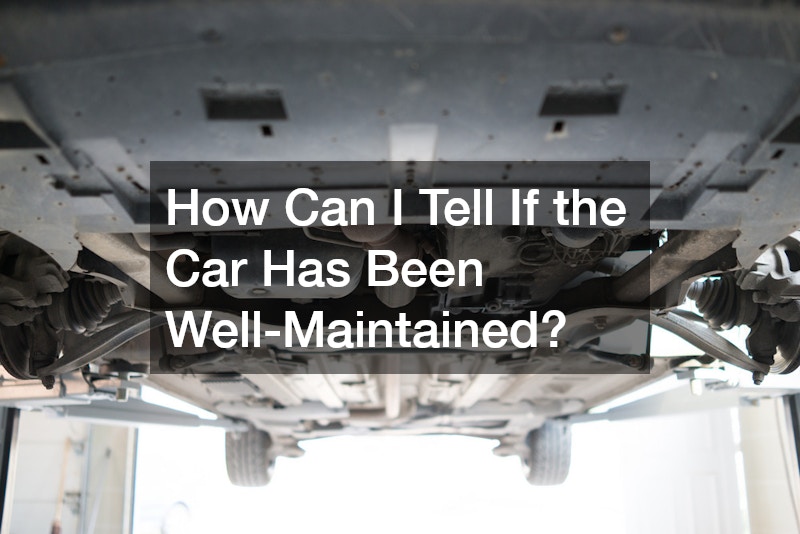Important Questions to Ask When Buying a Used Car for the First Time

Purchasing a used car can be a challenging task, especially for first-time buyers. However, asking the right questions can make the process smoother and help you make an informed decision. Whether you’re dealing with a private seller, a dealership, or a service like cash for cars, understanding the vehicle’s history and future maintenance needs is critical.
This guide outlines essential questions and factors to consider when buying a used car in Australia.
What Should I Ask About the Vehicle’s Maintenance History?
Understanding the maintenance history is one of the most critical aspects of buying a used car. This helps you avoid unforeseen issues and potentially expensive repairs in the future. Request service records to confirm whether regular maintenance, such as oil changes, tyre rotations, and major repairs (like transmission work), has been performed.
Check for records of significant repairs, such as air conditioning system fixes or engine overhauls, as these might suggest recurring issues. A well-documented service history is a strong indicator of a well-cared-for vehicle.
It’s also wise to confirm whether the previous owner adhered to the manufacturer’s recommended service schedule. You can cross-reference the records with independent vehicle history reports for added assurance.
How Can I Tell If the Car Has Been Well-Maintained?

Conducting a thorough visual inspection is essential to assess the car’s condition. Examine the engine bay, tyres, and undercarriage for signs of leaks, rust, or wear and tear. Pay attention to consumables such as tyres, fluids, and the condition of the windscreen. Well-maintained vehicles typically have clean windscreen repairs and no fluid leaks.
Unusual sounds, such as rattling or squeaking, can indicate underlying problems. If you’re unsure, consider having a local mechanic or professional inspection service evaluate the car. These experts can identify issues that might not be visible to an untrained eye.
What are the Most Common Repairs for This Make and Model?
Different makes and models often have unique repair patterns. Research online forums, consumer reports, and automotive blogs to identify common issues with the vehicle you’re considering. This information can help you anticipate future maintenance costs and negotiate a fair price.
For example, some cars are known to have frequent issues with cooling systems, while others might experience wear in their suspension or brakes. Identifying these trends will help you plan for repairs and determine whether the car suits your needs.
Check with local mechanics or service centres to see if the make and model have been subject to any recalls. Addressing these concerns upfront ensures you’re better prepared for potential challenges.
How Often Should I Expect to Service This Vehicle?
The frequency of servicing depends on the car’s make, model, and usage. High-mileage vehicles or those used for towing may require more frequent servicing. Review the manufacturer’s recommended service intervals and factor in your driving conditions.
Australian driving conditions, such as city commutes or rural roads, can affect maintenance needs. Regular maintenance, including oil changes and air conditioning checks, may be necessary for optimal performance.
Consult a local mechanic or service provider to estimate the servicing frequency based on your specific circumstances. Their expertise can provide valuable insights into the cost and effort required to maintain the car.
What Are the Signs That a Car Needs Immediate Repairs?
Recognising warning signs of mechanical issues can save you from costly repairs down the line. Listen for unusual noises like grinding, knocking, or squealing, as these often signal problems with the engine, brakes, or suspension.
Dashboard warning lights, such as those for low oil pressure or engine troubles, should never be ignored. Immediate attention to these issues can prevent more significant damage.
Inspect the vehicle for fluid leaks underneath. Pooling fluids might indicate problems with the cooling system, transmission, or engine. Address these concerns promptly to ensure the car remains roadworthy.
How Can I Tell If Repairs Are Fairly Priced?
Determining whether you’re being charged a fair price for repairs is crucial when budgeting for car ownership. Seek quotes from multiple mechanics or service providers to compare pricing.
Online tools and forums tailored to Australian car owners can also offer insights into typical repair costs. For example, websites that estimate repair prices based on your car’s make and model can provide a baseline for comparison.
If a quote seems unusually high or low, consult trusted local mechanics or auto repair shops for a second opinion. Transparent communication and a detailed breakdown of costs are key indicators of a reliable service provider.
What Should I Check During the Pre-Purchase Inspection?
A comprehensive pre-purchase inspection can reveal hidden issues. Check the vehicle’s exterior for mismatched paint or signs of past accidents. Inspect the tyres for uneven wear and test the windscreen for chips or cracks that could lead to future repairs.
Ask a trusted mechanic or inspection service to evaluate the engine, transmission, and suspension. These professionals can uncover problems that may not be visible during a casual inspection.
Don’t forget to inspect the interior. Worn upholstery, damaged switches, or poor detailing may indicate neglect. A thorough pre-purchase check ensures you’re making an informed decision.
How Can I Estimate Routine Maintenance Costs?
Understanding routine maintenance costs helps you budget effectively. Review the owner’s manual for recommended service intervals and typical expenses. This information provides a benchmark for expected costs.
Speak to local service centres or mechanics for specific estimates based on the car’s make and model. Their experience can help you plan for standard upkeep such as oil changes, tyre replacements, and brake servicing.
Online forums and community groups can also be valuable resources. Sharing experiences with other Australian drivers can offer insights into the costs associated with specific vehicles.
Are There Any Recalls or Common Issues I Should Be Aware Of?
Checking for recalls or known issues is essential to ensure the car’s safety and reliability. Visit the manufacturer’s website or consult with local authorities to verify whether the vehicle has been subject to recalls.
Forums and user reviews can also provide first-hand accounts of issues experienced by other owners of the same make and model. This research helps you identify potential problems and negotiate accordingly.
When discussing recalls or common issues with a seller, request proof that necessary repairs or updates have been completed. Staying informed empowers you to make a safer purchase.
How Can I Find a Reliable Mechanic?

Finding a trustworthy mechanic is vital for maintaining your car. Seek recommendations from friends, family, or local community groups. Personal referrals are often a reliable way to discover reputable service providers.
Look for mechanics certified by recognised Australian organisations, as these certifications indicate professionalism and expertise. Consider the shop’s longevity and reputation in the area.
Visit the mechanic for a consultation to assess their approach to customer service. A reliable mechanic will answer your questions thoroughly and offer transparent pricing for repairs and maintenance.
How Can I Extend the Life of My Vehicle?
Proper care and maintenance can significantly prolong your car’s lifespan. Follow the manufacturer’s recommended service schedule and address minor issues promptly to prevent them from becoming major problems.
Invest in regular detailing to maintain the car’s interior and exterior condition. This not only enhances your driving experience but also preserves the vehicle’s resale value.
Routine checks of fluid levels, tyre pressure, and other consumables help prevent wear and tear. Staying proactive with maintenance ensures a safer and more reliable driving experience.
By asking the right questions and staying informed, you can make a confident decision when purchasing a used car in Australia. Regular maintenance, a thorough inspection, and consulting reliable professionals will ensure you get the most value from your investment.
